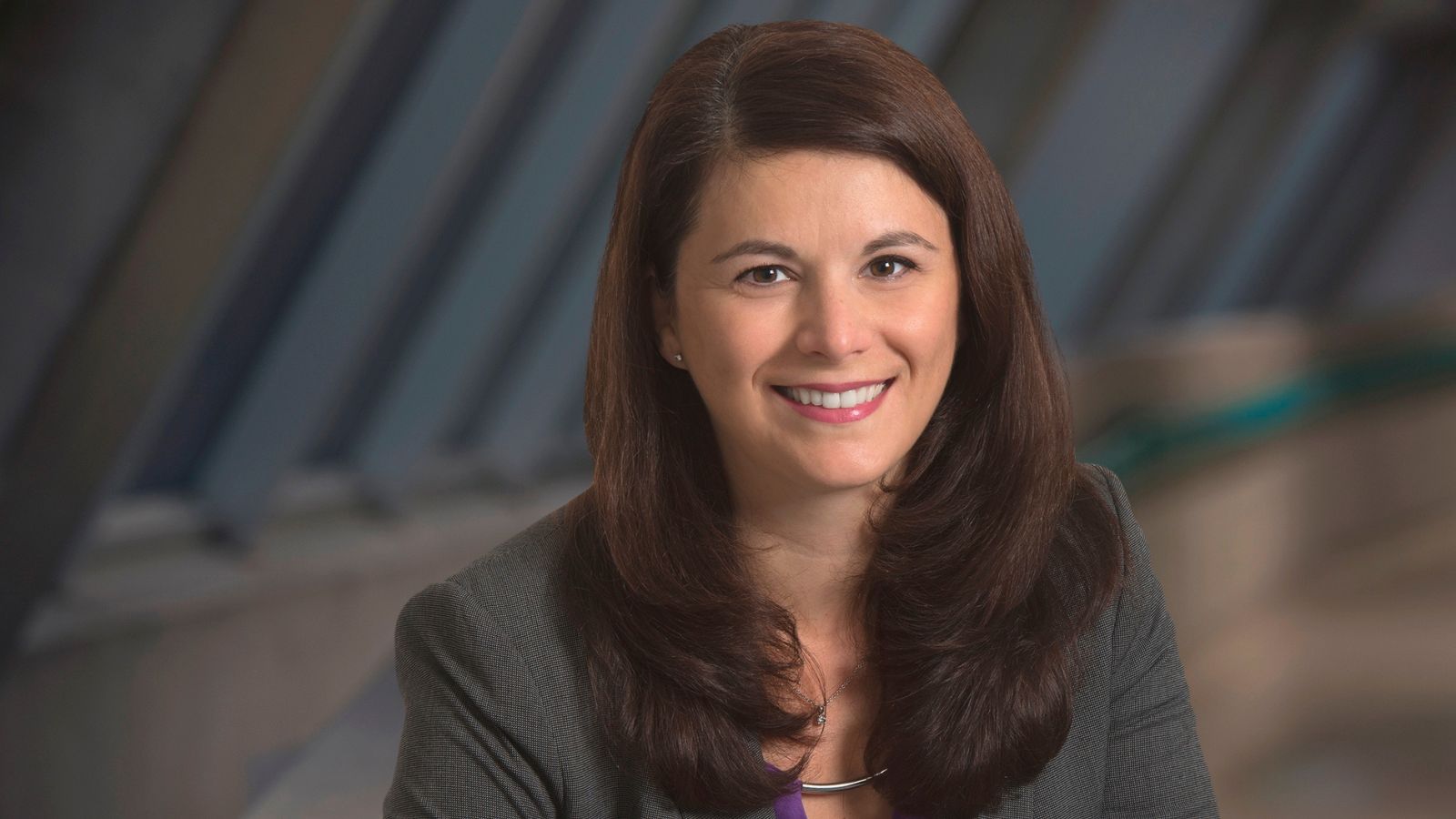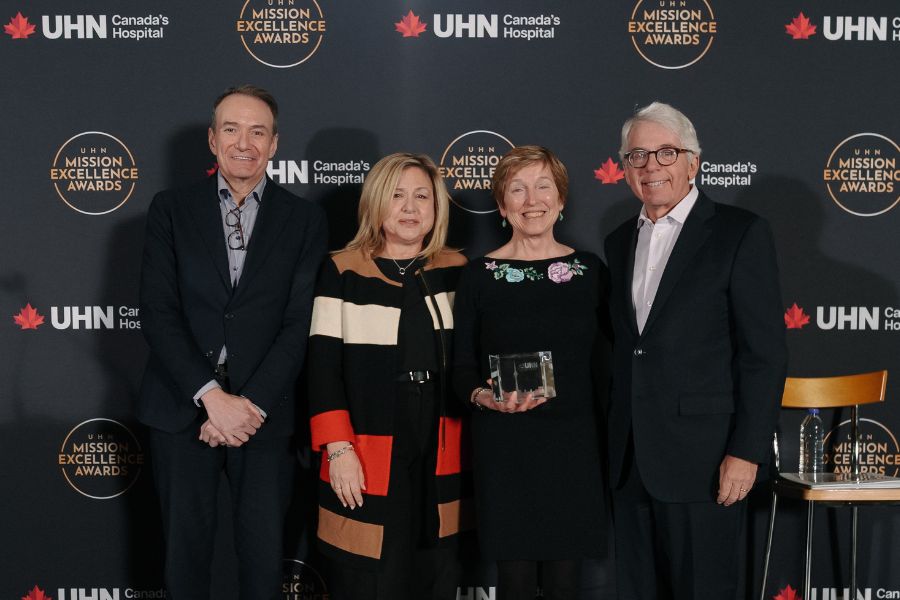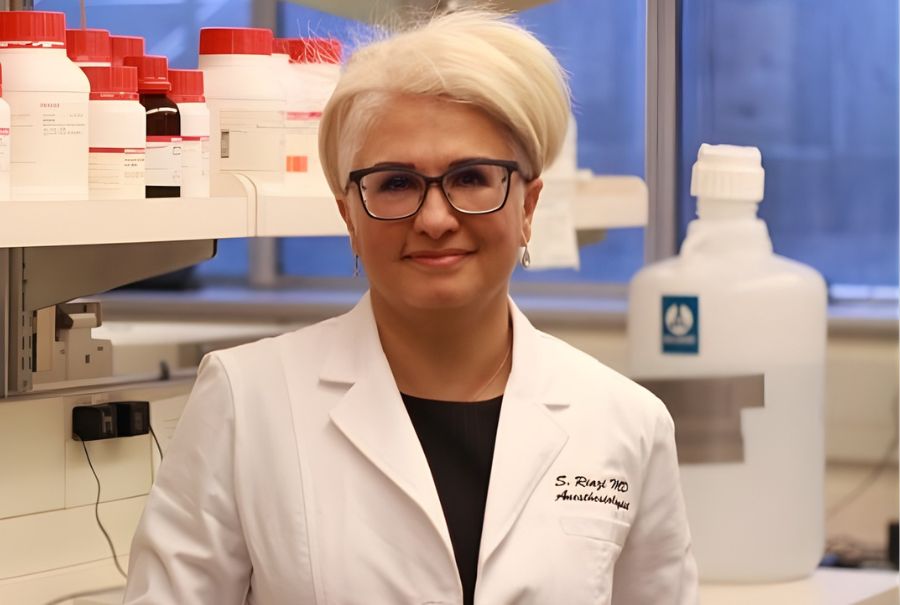
Name: Camelia Capraru
Title: Clinical Research Manager
Number of years working in health care: 21
I was born and raised in: Romania
I decided to go into health care because it felt natural to me to help others and I’ve been fascinated by the field of medicine since I was a child. My personal interactions with the health care system when I was growing up helped me realize that there is so much work to do, so much to discover, from new treatments to how health care is delivered to patients. Soon after I graduated from a medical university in Romania, I came to Canada and started working in research. I was fortunate enough not only to be a witness but also be part of a team that contributed to the research on viral hepatitis C treatments that lead to having a cure for it today: the first curable chronic infectious disease.
My role at UHN is to lead our community outreach program, Viral Hepatitis Care Network (VIRCAN), to reach the World Health Organization’s (WHO) viral hepatitis elimination targets by 2030 in Ontario.
VIRCAN is an integrated community program that was created by the hepatologists from Toronto Centre for Liver Disease at UHN in 2016 to address the remaining gaps in the care of viral hepatitis in the GTA (Greater Toronto Area). This is a comprehensive community program providing education, research, screening, diagnosis and linkage to care needed to remove barriers to care for the majority of Canadians with viral hepatitis, and especially for priority populations. To address these challenges, we developed screening and linkage to care protocols tailored to specific community settings.
Something I am proud of at UHN is the VIRCAN team. We have a team of clinicians, scientists/researchers, clinical research and outreach staff, coming all together working towards one goal: elimination of viral hepatitis in Ontario. We share ideas and find ways to improve or create new models of care to adapt to any type of community settings or priority populations. We established collaborations with microbiology labs, including Public Health Ontario Laboratory, and explored different modalities to improve the viral hepatitis testing in the community and remote settings. As a result, the finger prick HCV RNA sample collection on a dried blood spot (DBS) was introduced in Ontario in 2018. The benefit of this method is a significant increase in linkage to care rate in specific settings. We establish sustainable partnerships with other community health and service providers to expand the screening and linkage to care coverage in our province. We have over 70 community partners in the Viral Hepatitis Care Network, and together we tested over 80,000 individuals for hepatitis B and hepatitis C over the last 7 years.
The most incredible thing that I’ve seen at work is the courage of our patients to participate in clinical trials, to receive drugs that might or might not work for them, but would help other patients in the future. The first oral drugs for hepatitis C had to be taken with interferon for 6 to 12 months, and had terrible side-effects, like skin rashes, anxiety, and depression. It took several years of research and clinical trials to lead to an oral treatment that is taken for only for 2 or 3 months with minimal or no side effects. I believe without these patients and their courage, we could not have a cure for hepatitis C today.
The thing I love the most about my job is that I work with an outstanding team to accomplish a goal that will have such an impact on so many people in our province and in Canada. I am grateful that UHN creates this environment and supports us in our research and work to improve how viral hepatitis care is delivered in our communities.
I sometimes worry about losing sight of what is important, and forgetting about our accomplishments. Changes come with resistance and roadblocks, and it is important to pause, regroup, and look back to see the progress made so far.
I am inspired by people who genuinely want to make a difference in this world, regardless of the field they are in, to make it a better place for everyone.
My ideal day off is to go scuba diving with friends and take underwater photos. I love sharing, and underwater photography is my way of sharing the beauty of our world that is not so easily accessible to everyone. When I cannot go scuba diving, I enjoy spending quality time with my friends and family, ideally in nature by the water.
Did you know you can recognize a UHN staff member through our Honour Your Hero program? Express gratitude for the care you or a loved one received and share a personal message of thanks with the people who supported you throughout your care journey. Your gift will supported research, education and the enhancement of patient care right here at UHN.


